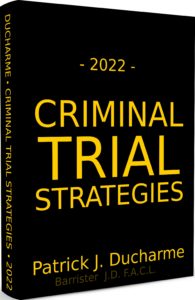There are also specified offences that must be tried in a Superior
Court of Criminal Jurisdiction.1 The regular mode of trial in this jurisdiction is, by virtue of the combined effect of sections 468 and 471, by way of jury. However, section 473 provides for an election or re-election to trial by a Superior Court Judge alone, that is, without a jury, but only with the consent of the Attorney General. Section 473 provides that “notwithstanding anything in this Act, an accused charged with an offence listed in section 469 may, with the consent of the accused and the Attorney General, be tried without a jury by a Judge of a superior court of criminal jurisdiction.
Therefore, even if an offence is listed in section 469 if both the accused and the Attorney General consent in accordance with section 473 (1), the trial may be conducted by a trial Judge without a jury, and their consent shall not be withdrawn unless both the accused and the Attorney General agree to the withdrawal.
The offences listed in section 469 of the Code are the most serious offences in Canada, including murder, treason, sedition, and the offences of being an accessory after the fact to treason or murder, and crimes against humanity, war crimes and the offences of attempting to commit any of these crimes.
“Attorney General” is defined in section 2 of the Code as meaning the Attorney General or Solicitor General of the Province in which the proceedings are taken, and includes his or her lawful Deputy, or, if those proceedings are referred to in subsection 2.3 (1), the Attorney General of Canada or the Attorney General or Solicitor General of the Province in which the proceedings are taken, including the lawful Deputy of any of them.
The above is the an excerpt of Patrick J Ducharme’s book, Criminal Trial Strategies, available at Amazon or in bulk through MedicaLegal Publishing.
Read or listen to the Preface and Introduction and subscribe to Patrick Ducharme’s Youtube Channel.

